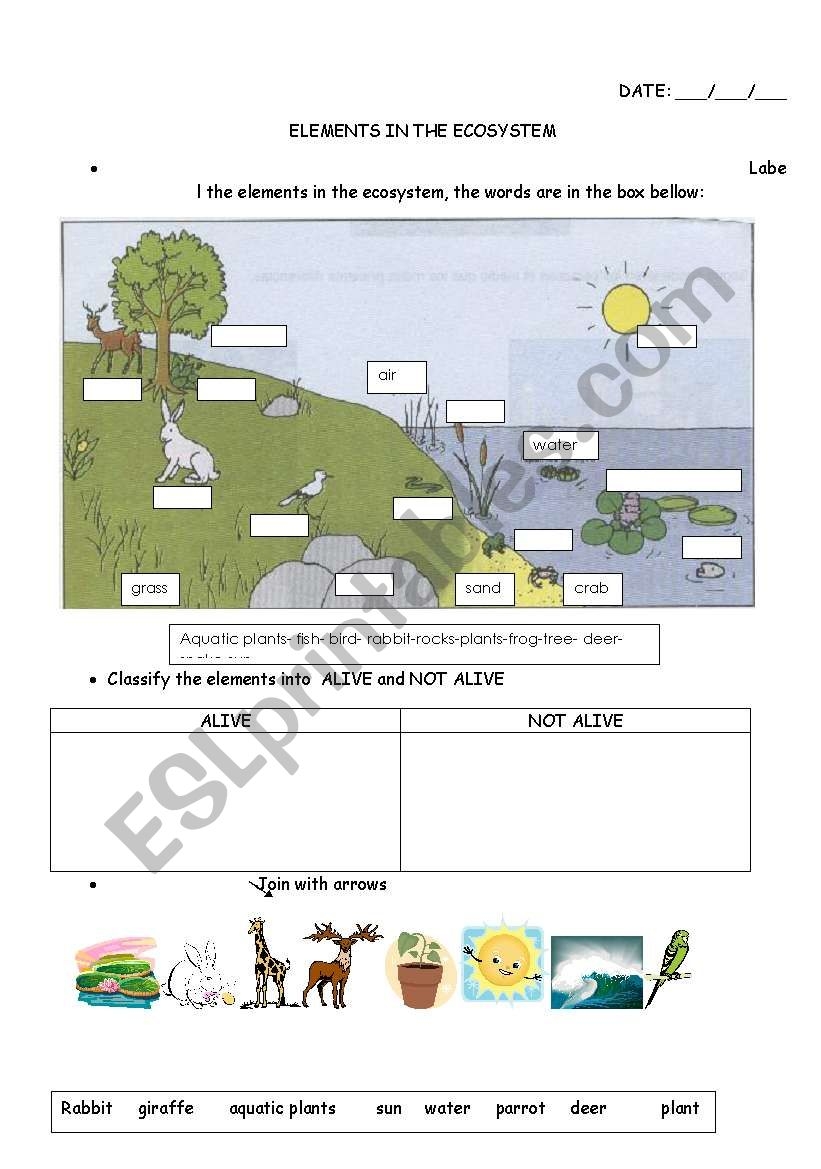Ecosystems play a crucial role in maintaining a balance in our environment. They consist of living organisms and their physical environment, working together as a complex system. From forests to oceans, ecosystems provide us with essential services such as clean air, water, and food.
It is essential for us to understand the dynamics of ecosystems and how human activities can impact them. This is where ecosystem worksheets come into play, helping students learn about the intricate relationships between different organisms and their surroundings.
Ecosystem Worksheet
An ecosystem worksheet typically consists of activities and questions that prompt students to think critically about the various components of an ecosystem. These worksheets cover topics such as food chains, energy flow, biodiversity, and human impacts on ecosystems.
Students may be asked to identify different organisms in a given ecosystem, analyze their roles, and understand how they are connected through food chains and webs. They may also explore the concept of carrying capacity and how it affects population dynamics within an ecosystem.
Furthermore, ecosystem worksheets often include scenarios where students have to consider the consequences of human activities such as deforestation, pollution, and overfishing on the balance of an ecosystem. This helps them understand the importance of conservation and sustainable practices in preserving our natural world.
By engaging with ecosystem worksheets, students not only gain knowledge about the intricate relationships within ecosystems but also develop critical thinking skills and a sense of environmental responsibility. These worksheets encourage active learning and hands-on exploration, making the concepts more tangible and relevant to students’ everyday lives.
In conclusion, ecosystem worksheets are valuable tools for educating students about the importance of preserving and protecting our natural world. By fostering an understanding of the delicate balance within ecosystems, we can empower the next generation to make informed decisions that will benefit both the environment and society as a whole.
